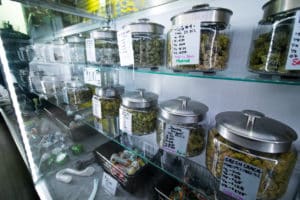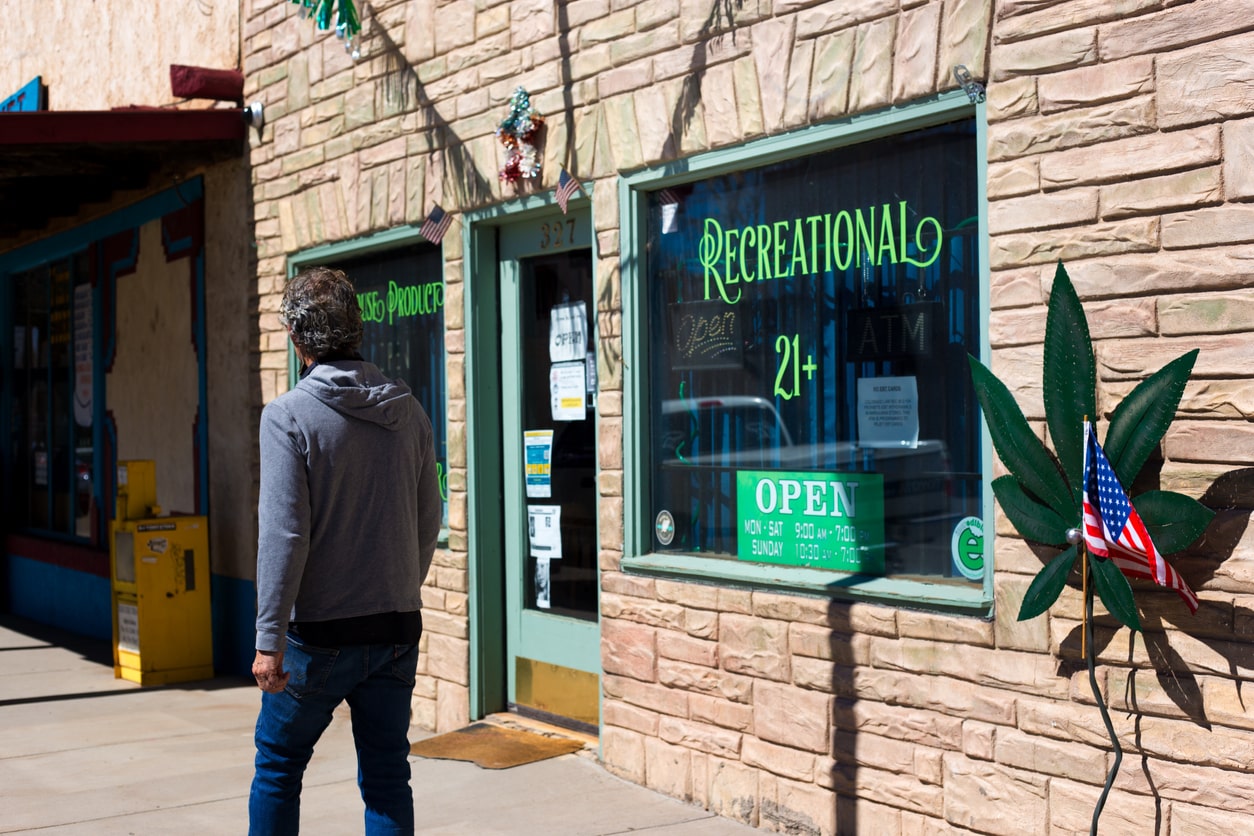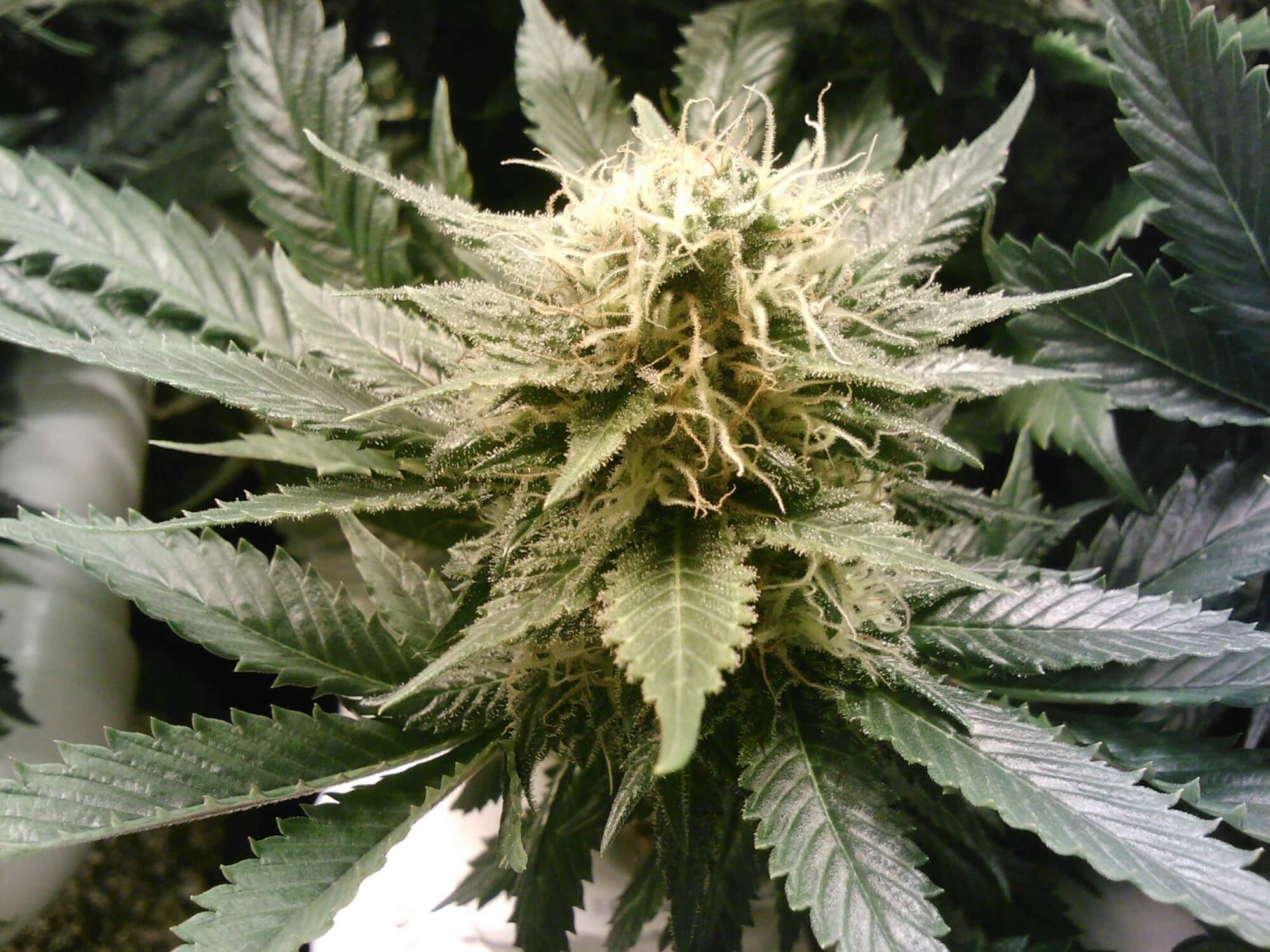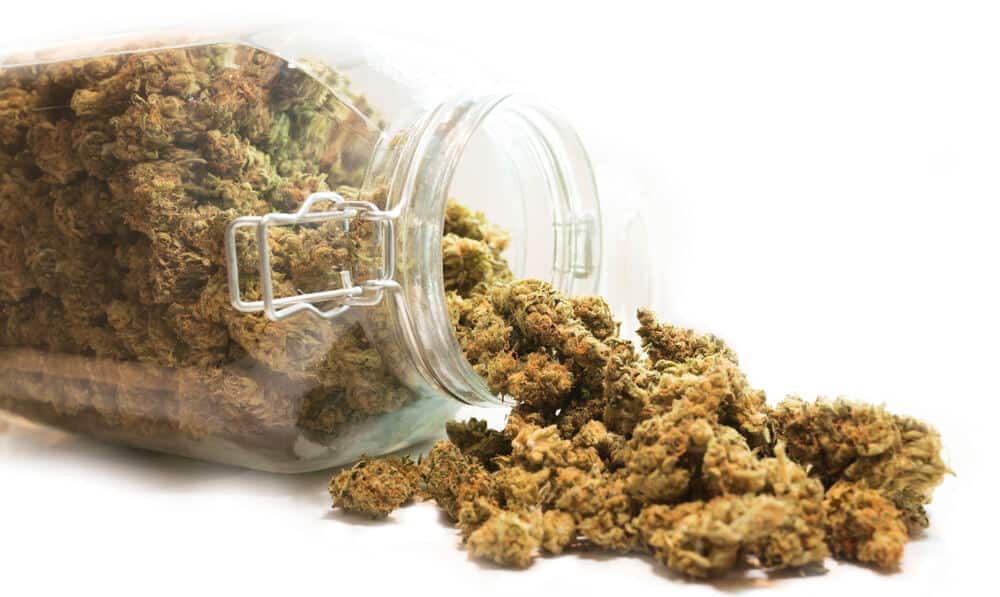Learn How to Start a Cannabis Dispensary
As the number of states offering some form of legalized cannabis continues to expand throughout the country, with 18 states as well as Washington DC having legalized recreational cannabis and an additional 37 states allowing medical cannabis, very few industries are experiencing the same level of staggering growth occurring in the cannabis industry. Last year alone, legal cannabis sales in the United States grew 46% in 2020, surpassing $17.5 billion for the previous year.
Clearly, while there is great potential for developing a very lucrative business in the cannabis industry, there are also a variety of challenging legal hurdles. Other challenges include a steep learning curve, associated with navigating and understanding the intricacies of such a new and rapidly maturing industry. These alone can make the process of opening a cannabis dispensary quite intimidating. By surrounding yourself with the proper support team of cannabis industry consultants, ancillary professionals and other industry experts, you will be much better equipped to easily navigate the challenges that lie ahead.
Steps to Opening a Cannabis Dispensary
The following step-by-step guide will walk you through the basics of the process. With nearly a decade of experience as nationwide cannabis consultants, American Cannabis Company can ensure you are primed for success when opening your new cannabis dispensary.
Step 1: Research Your State Licensure Requirements
Each town, city and state will have its own unique zoning and licensure requirements for properly opening a retail cannabis dispensary. Most states, if not all, will implement and operate a program-specific licensing structure per the type of dispensary (medical vs. recreational) you intend to open. If your plans are to grow and process your own product to be sold in your retail store, you will two need separate licenses – one that allows for cultivation as well as one that allows for retail distribution. It is imperative that you conduct a thorough due diligence on the various license types offered by your state so that you aptly apply for the proper license.
Remember, each town and each state will have specific deadlines in place for when applications will be due for review before being awarded licensing to start operations. Timing each piece of the puzzle will be vital for not only assembling and submitting the most competitive application possible, but also ensuring that you have met those deadlines to be considered for permitting. Research and understand each step of the application process, including submittal, and be fully prepared to follow those steps as directed.
Step 2: Know Your State’s Cannabis Laws

- Purchase limits
- How much THC can be in a single serving of cannabis and/or cannabis products
- Tax laws associated with selling distribution of cannabis
- Acceptable forms of payment
- How product must be tracked from seed to sale
- Security requirements
Step 3: Build Your Team
There are many facets to running a cannabis distribution business for which you will need to have a strong team in place to ensure successful operations. This team should include:
- An attorney with experience in the cannabis industry
- An accountant with experience in the cannabis industry – There are cannabis-specific tax codes that must be adhered to in order to avoid being penalized during an audit
- A knowledgeable compliance officer to ensure every aspect of your cannabis business maintains full compliance with all local and state regulations
- An experienced retail professional with a strong understanding of POS systems and inventory tracking and reconciliation
- A security contractor to design and maintain each facility’s security system, ensuring on-going compliance with all local and state cannabis security requirements
- An experienced and qualified cannabis cultivator or horticulturalist who can properly manage each aspect of the cultivation operation (if you’re planning on cultivating your own product)
- A medical director (if you are opening a medical dispensary)
Patient Advocacy
In terms of customer and patient advocacy, one of the key aspects of your dispensary’s success will simply be the valued interaction of each visitor’s experience with members of your sales team. Both medical patients and recreational shoppers alike will want to work closely with dispensary staff to determine the safest and most ideal cannabis consumption methods, dosage, usage recommendations and the quality of cannabis products to focus on. Your top priority will be to cultivate close relationships between customers and your sales team dispensing their cannabis products.
A knowledgeable dispensary staff will be able to properly inform customers and patients about the cannabis products available and will ultimately be able to recommend specific cannabis products suitable for each visitor. It will be important that those visitors feel confident in the recommendations from the sales team as it relates to the administration, dosage and quantities of cannabis they are consuming.
Step 4: Create a Business Plan

Make sure the following aspects of your dispensary are addressed in your business plan:
- Clientele – Are you catering to the high-end cannabis consumer, the budget-oriented consumer, or a balanced mix of both demographics? It is crucial that you identify your target clientele from the outset so that you can build your business with their specific needs in mind.
- Product Selection – What types of products do you plan to offer? How will your product selection make you stand out from your competitors? What are your plans for expanding product offerings in the future? Having a firm plan of action for establishing key products and selected SKU’s may dictate the rate of speed to market that your business can achieve.
- Business Operations – You will need to identify the specific roles for each of your core team members, including a hierarchy of those making key decision and implementing effective strategies. This aspect of your plan should also outline company hiring practices for the rest of the team, including employee compensation and benefits.
- Cultivation Operations – You will need to detail how you will be sourcing your cannabis products. Will you also be establishing your own in-house commercial grow operation or will you be securing product from a licensed wholesaler within your market? Are you considering a vertically integrated production model for full control of each aspect of cultivation, manufacturing and retail? If so, you will need to implement comprehensive plans for staging such operations as well as implementing industry proven methodologies included for each stage of production and distribution.
- Environmental Considerations – Any business associated with growing a cultivated crop must adhere to environmental regulations. Cannabis specific Environmental Reduction Plans will be incredibly valuable for early stages of planning your business and meeting licensing requirements.
- Inventory Control – As legal cannabis distributors, your business will be legally required to track each product from seed to sale. This will require a comprehensive and state regulated cannabis POS system that will provide detailed tracking necessary to comply with all state laws.
Step 5: Secure Financing

- Application Fees
- Licensing Fees
- Annual staffing
- Rent or mortgage at your retail location
- Any upfront renovations necessary at your dispensary
- Financial service costs
- Professional fees
- Security and surveillance costs
- Equipment (computers, POS systems, cash registers, etc.)
- Marketing costs
- Product costs
These various expenses will add up quickly, and you should expect dispensary startup costs to be at least $500,000. Depending on the look and aesthetics you are trying to achieve, it may cost significantly more than this.
Unfortunately, securing financing for a cannabis dispensary is often more challenging than in other industries. Cannabis is still illegal on a federal level, and that means banks are unable to offer you a loan in most cases.
Due to such restrictions, you will need to secure funding through other means. Some of the most common ways to finance your new cannabis business include:
- Business Loans – Credit Unions are a common a common option instead of banks. While major banks are not able to loan you money, it is possible to secure a loan from a credit union.
- Strategic Partnerships – Due to the rapid growth potential in the cannabis industry, many individuals are certainly searching for prime opportunities to get involved in a dispensary business. Developing key partnerships with individuals who possess the financial resources necessary to fund your operation can be an effective way to raise needed startup capital. In addition, you may often find that by choosing the right partner, you have someone whose skill sets complement yours, making your business team even stronger.
- Cannabis Specific Investment Groups – There are many private investors looking to get involved in a cannabis business including cannabis investment groups. However, while this may be a good option for financing, it is important to understand that many of these investors will charge high interest rates, so it is advisable that you explore other possible solutions before choosing to work with a cannabis investment group.
- Angel Investors – These individuals or firms provide funding for a business in exchange for partial ownership or equity. If you have a strong business plan, you may be able to find an angel investor interested in financing your dispensary. Just remember, that anyone who contributes any amount of capital, especially for equity in return, will likely have to be listed on the application and will be subject to extensive background checks.
Step 6: Choose Your Dispensary Location

It will be important to do some degree of market research to determine which areas are most ideally suited to not only help your business thrive, but to be properly zoned as well. Some factors to consider include, but are not limited to:
- Which areas are located near your target customer base?
- What are the local ordinances, bans or allowances for each town?
- What is the total number of licenses permitted in each town?
- Is the community cannabis-friendly?
- Does the location have ample parking?
- What is the proximity of the location to major roads or highways?
- Does the location receive a significant amount of foot and vehicle traffic?
- What is the level of competition? Are there several competing dispensaries nearby?
Keep in mind that just because cannabis is legal in your state, it does not mean that all commercial real estate landlords will be willing to allow cannabis business operations. In order to avoid potential problems with a cannabis business-averse landlord, you should discuss your business plans upfront to make sure you rent from someone who is supportive of a retail cannabis business.
Step 7: Learn the Industry Inside and Out
Once you have secured funding and a location, it will be imperative that you learn and understand every aspect of your chosen industry. In order to be a successful cannabis retailer, you must have complete mastery of the technical knowledge associated with running a cannabis business.
It will be vital for you and your team to fully understand, at a minimum, seed-to-sale tracking, inventory control and the importance of industry compliance as well as the fundamentals of customer services and retail sales. Having this background knowledge will ensure ongoing compliance with all rules and regulations as well as make you a better salesman and spokesperson for your dispensary.
Furthermore, this knowledge is especially important if you plan to cultivate and/or process your own product. In this situation, you may need to enroll in a horticulture program, grow room design and electrical engineering courses to acquire the knowledge necessary to set up a functioning grow room and achieve the best possible yields per square foot within the facility.
For the purpose of staying up to date on the continued growth of the industry, you and those around you should also take the time to continue educating yourselves and learn what is trending in the world of cannabis. Different customers will like different products, and staying on top of new products in the cannabis space will keep you in tune with consumer demand.
Step 8: Designing Your Dispensary and Crafting Your Retail Experience
Now comes the fun…

It is important to understand that dispensaries have certain unique layout features that are distinct from other retail businesses, and you will need to configure your retail space with these items in mind. Working with an architect and interior designer will help you design an efficient space that provides a warm and welcoming atmosphere for your patients/customers.
Make sure you keep the following considerations in mind when you design your dispensary:
- Limited Access Areas vs. Restricted Access Areas – Most states will require you to designate specific sections of your dispensary as “Limited Access Areas” and others as “Restricted Areas”. Limited Access Areas refer to the spaces where your customers can wait to be served, browse your products, and speak with sales associate to complete a purchase. Restricted Access Areas refer to the spaces where your employees perform much of the “behind the scenes” work, such as shipping/receiving, inventory/storage, and product processing. These areas must be off limits to your customers and designing a layout that keeps your public and private areas separate is an important component to the process.
- Medical vs. Recreational – Certain states will require that medical and recreational cannabis areas be kept separate. If you are planning on selling to both sectors, you must make sure your dispensary complies with local regulations. Even if your state or municipality doesn’t require that these areas be kept separate, it’s a good idea to craft a different experience for each section of your dispensary to give them a unique feel.
- Customer Flow – How will customers move through your store? In order to provide the best possible experience, you will want to minimize situations where customer areas become crowded and get bottled up. Make sure your waiting room contains plenty of seating to accommodate customers during a busy rush. You will also want to have enough countertop space and cash registers/POS systems to accommodate sales and keep customers moving through the store. While some customers may be knowledgeable and will know what they want right away resulting in quick transactions, other individuals may require more education from the sales associates. In order to avoid bottlenecks caused by customers who spend a great deal of time engaging sales associates, the sales floor should have enough counter space and staff to serve multiple customers at once.
- Dispensary Aesthetic – Designing a warm, welcoming, professional looking retail space is key. While there may be exceptions to the rule, most customers do not want to walk into a dispensary decorated with jam band posters, tie-dyed tapestries and other typical “stoner” decor. This is a professional business, and it should look the part. Creating an atmosphere that removes the old stigma associated with purchasing cannabis products is crucial. However, for this you have many options – you can choose a modern look, a more natural look, or even a rustic look. Your furnishings, color schemes and even your background music should align with your brand image and should always remain professional and inviting.
Step 9: Hiring Your Employees

You will need to hire the following staff:
- Sales Associates (Budtenders) – These are the customer-facing employees, and they are crucial to the overall success of your dispensary. Each Sales Associate must possess ample knowledge of the products you carry, be able to talk about them intelligently and make recommendations to each individual customer. A good Sales Associate must also maintain a customer service mindset, as they will serve front line for providing customers with a great retail experience that will keep them coming back. In addition, your sales staff must firmly understand and remain committed adhering to local and state rules and regulations in place for retail cannabis sales.
- General Manager – Perhaps one of the most important positions of your team, this person will oversee all aspects of the daily operations within your dispensary. In addition to hiring staff, training staff, scheduling and other important pieces of team management, your General Manager will be responsible for ensuring your dispensary remains in full compliance with all local and state rules and regulations.
- Greeter or Receptionist – As the first person customers interact with when they visit your dispensary, not only will the greeter be responsible for checking IDs and directing customers they will also set the tone for the entire customer experience though great first impressions.
- Security Staffing – Security staff is an integral part of your operation as well. Because dispensaries have a great deal of cash on-hand, as well as thousands of dollars in product, your security team will be tasked with protecting this cash and product while remaining friendly around customers.
- Inventory Manager – With the strict inventory regulations associated with the cannabis industry, this role is also very important. Your inventory manager will be responsible for inventory auditing and management as well maintaining up to date records of transactions and plant tracking through the system to ensure that all product is accounted for and not being diverted to the black market. Inventory Managers will serve as a key player in maintaining long term compliance within the regulated cannabis industry.
- Purchasing/Vendor Manager – Even if you have your own cultivation facility, you will need to offer a wide range of products from third party vendors, such as edibles, tinctures and other items that are not produced at your cultivation facility. Having a dedicated employee who is responsible for dealing with vendors and negotiating purchasing agreements will be critical, taking a very time-consuming task off the general manager’s plate.
- Software and IT Manager – Your dispensary will require a great deal of technology to run smoothly without interruption. You will need to fully utilize computers for processing intake and tracking inventory. Additionally, you will need a dedicated POS system to manage and track all daily sales. You may even want to provide customers with tablets to browse your products while they wait, to encourage seamless transactions and quick turnover. There are also items such as barcode scanners, receipt printers, and Wi-Fi which are necessary to run your business for which if any of this technology malfunctions, it can prove devastating for your business’s success. Make sure you have an accessible employee or contractor who can promptly fix any of these technical issues that may occur.
American Cannabis Company Can Help You Start Your New Dispensary
As you can see, opening a cannabis dispensary is a tremendous undertaking. With so many parts to the process, it is often helpful to recruit the assistance of a professional consultant. American Cannabis Company has been providing comprehensive cannabis consulting services nationwide for nearly a decade and are fully equipped to guide you through the process to ensure your new dispensary is set up for quick speed to market and long-term success.
ACC is the only cannabis pre-license specialists in the country with a License Right Approach™ designed to help you secure your license and start a successful cannabis dispensary. The professionals at ACC help you navigate your specific state guidelines and regulations to ensure you apply for the right license and fulfill all pre-licensure requirements.
In addition, you will benefit from our experience in all the regulated U.S. cannabis markets, providing insight from which you will realize the full potential of your business. Our consultative process will guide you through all elements of setting up your dispensary to ensure every phase is mapped out and done correctly. The ACC team can help you build your operations from the ground up, giving you the infrastructure necessary to expand and thrive with a forward thinking mentality.
At American Cannabis Company, we are passionately committed to helping you build a successful cannabis business. Contact us today to schedule a consultation.





